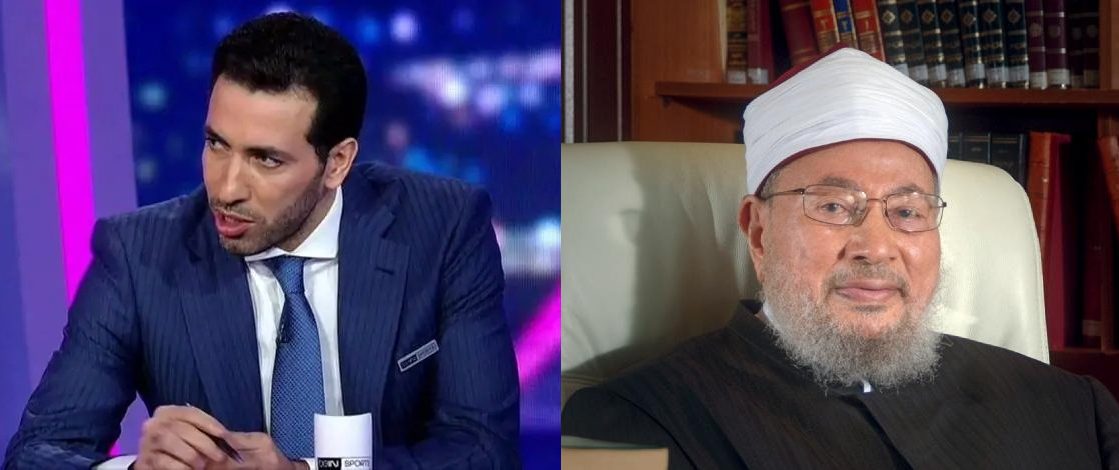Under the ‘Law Regulating Terrorist Entities and Terrorists Lists,’ those listed have their assets frozen and are banned from travel.
Egypt’s Court of Cassation removed beIN sports commentator, Mohamed Aboutrika, and late Muslim scholar Sheikh Yusuf Al-Qaradawi and his children from its ‘terror list’, the Egyptian Network for Human Rights (ENHR) confirmed on Saturday.
Aboutrika and Al-Qaradawi were among 1,526 Egyptians removed from the list after the court held a hearing regarding the appeal against the listing of a number of figures.
This came after the official gazette published a ruling in 2018, issued by the Cairo Criminal Court, to list 1,529 people, including former President Mohamed Morsi, on the ‘terror list’ for five years.
Morsi was Egypt’s first democratically elected president before Egyptian President Abdel Fattah El-Sisi seized power in a military coup in 2013. The late leader died during a court hearing in 2019 after being denied medical attention during his imprisonment.
Then in March 2021, the Egyptian Court of Cassation rejected the appeal submitted by Aboutrika against his listing.
“Under the ‘Law Regulating Terrorist Entities and Terrorists Lists,’ those whose names are listed on the “terrorism” lists have their assets frozen, are banned from travel, and their names are placed on watch lists at Egyptian airports and ports, among other measures,” ENHR said on its Facebook page.
Egyptian football superstar, Aboutrika, has lived in exile in Qatar since 2017 when he was added to the ‘terror list’ over alleged links to the Muslim Brotherhood – a common accusation by Cairo for all those that oppose or criticise the government.
Egypt’s government considers the Muslim Brotherhood a “terrorist group”. Aboutrika, whose assets were frozen in 2015, has repeatedly denied allegations of funding the group.
Late Muslim scholar, Al-Qaradawi, was still on the list after he died at the age of 96 in Doha in 2022.
The scholar was known to be a vocal opponent of President Sisi and was sentenced to life in prison in absentia following the 2013 military coup.
Such moves by the Egyptian authorities come under a wider pattern of crackdowns against those who speak against Sisi, including the press.
According to Reporters Without Borders (RSF), Egypt is one of the world’s biggest jailers of journalists, with many spending years in jail and solitary confinement without being formally charged or tried.
This was seen at the peak of the coup when Al Jazeera was subjected to notable violations and was shut down for its in-depth reporting on scenes in Cairo at the height of the 2011 Arab Spring.
Several Al Jazeera journalists were also detained at the time of the 2017 diplomatic crisis between Egypt and Qatar.
At the time, Egypt joined Saudi Arabia, the United Arab Emirates, and Bahrain in severing ties with Qatar and imposed an illegal air, land and sea blockade on the Gulf state.
Shutting down its landmark Al Jazeera network was among a list of 13 demands presented by the quartet in exchange for the lifting of the embargo. However, Doha rejected all 13 conditions.
Ties between Doha and Cairo began to thaw shortly after the signing of the Al-Ula Declaration in 2021, with Al Jazeera resuming its broadcasts from Egypt months later.
Despite this, Egyptian authorities only released Al Jazeera journalists, Bahaa Al-Din Ibrahim and Rabee Al-Sheikh, in March after years of imprisonment without trial. Authorities had accused them of “spreading false news”.







